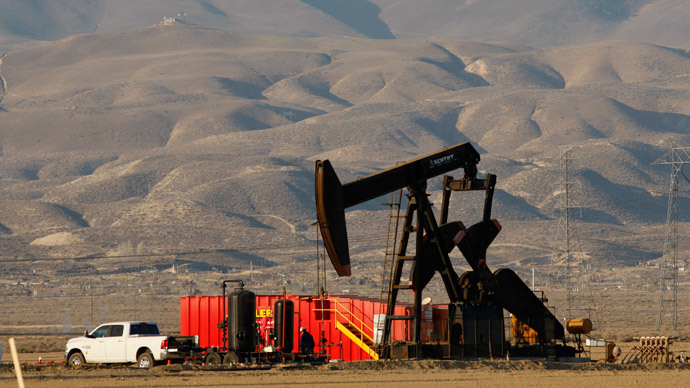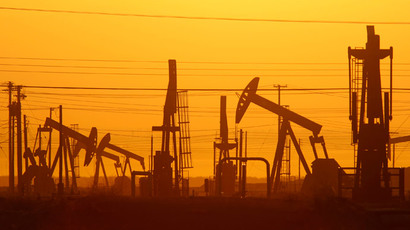Oklahoma at risk for damaging earthquake, but is fracking to blame?

Based on a dramatic increase in small seismic events throughout Oklahoma this year, the state is considered at risk for a rare magnitude-5.0 or higher earthquake, the US Geological Survey and the Oklahoma Geological Survey has announced.
The US Geological Survey (USGS) warning is the first for a state east of the Rockies, said research geophysicist Robert Williams of the USGS Earthquake Hazards Program. When that quake could strike or how strong the quake could be cannot be determined just yet, he said.
"We haven't seen this before in Oklahoma, so we had some concerns about putting a specific number on the chances of it," Williams told Live Science. "But we know from other cases around the world that if you have an increasing number of small earthquakes, the chances of a larger one will go up.”
California, for instance, sees more frequent magnitude 5.0 or larger quakes, but it is normal for the state to receive thousands of smaller seismic events per year. Oklahoma actually outpaced California in total quakes during each of the first three months in 2014.
"The rate of earthquakes increased dramatically in March and April," Williams said. "That alerted us to examine this further and put out this advisory statement."
While scientists are careful to rule out natural causes, many researchers believe injection wells used to dispose of hydraulic fracking wastewater are contributing to heightened earthquake activity. To unleash natural gas, hydraulic fracturing –or fracking – requires large volumes of water, sand, and chemicals to be pumped underground.
Scientists attending the recent Seismological Society of America (SSA) annual meeting said Thursday that the storage of wastewater in wells deep below the earth’s surface, in addition to fracking’s other processes, is changing the stress on existing faults, which could mean more frequent and larger quakes in the future.
Researchers previously believed quakes that resulted from fracking could not exceed a magnitude of 5.0, though stronger seismic events were recorded in 2011 around two heavily drilled areas in Colorado and Oklahoma.
The magnitude 5.7 quake that hit Prague, Oklahoma on Nov. 6, 2011 was, in fact, linked to fracking operations, the USGS said in March.
Mountingscientificevidence has linked an uptick in seismic activity in states like Oklahoma to fracking developments amid the current domestic energy boom.
The number of quakes magnitude 3.0 and stronger has increased by 50 percent in the past eight months in Oklahoma. The state experienced 183 quakes of this magnitude between October 2013 and mid-April 2014, according to LiveScience. From 1978 to 2008, Oklahoma had averaged only two earthquakes of magnitude 3.0 or higher every year.
The amount of toxic wastewater injected into the ground seems to provide some clarity as to what causes the earthquakes. A single fracking operation uses two to five million gallons of water, according to reports, but much more wastewater ends up in a disposal well.
“There are so many injection operations throughout much of the US now that even though a small fraction might induce quakes, those quakes have contributed dramatically to the seismic hazard, especially east of the Rockies,” said Arthur McGarr, a USGS scientist who, at last week’s SSA meeting, was part of a group of researchers that announced new research that further linked fracking to worsening earthquakes.
Fracking has also been associated with groundwater contamination, exacerbation of drought conditions, and a host of healthconcerns for humans and the localenvironment.














